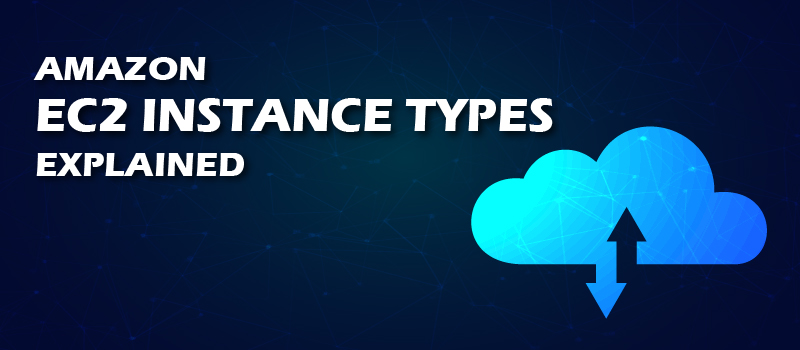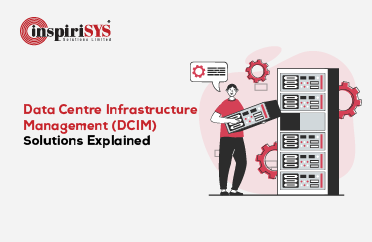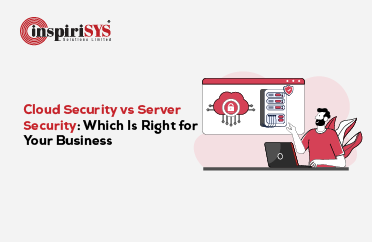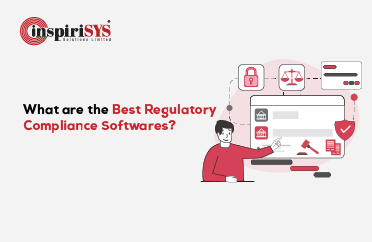Amazon reported AWS revenue of $46B+, rate annualized from Q3 2020. It is 29% year to year growth when compared to Q3 2019. The tremendous growth of AWS is made possible by the scalability of Amazon EC2 instances. Along with scalability the instances are reliable and offer low-cost infrastructure. Organizations across the world leverage EC2 instances to develop and deploy their business-critical applications faster without a need to invest heavily on hardware. They leverage the pay-per-use model without the need to bring any upfront investment. While AWS provides complete control over the instances, it is highly secured to defend the organizational data from emerging cyber threats.
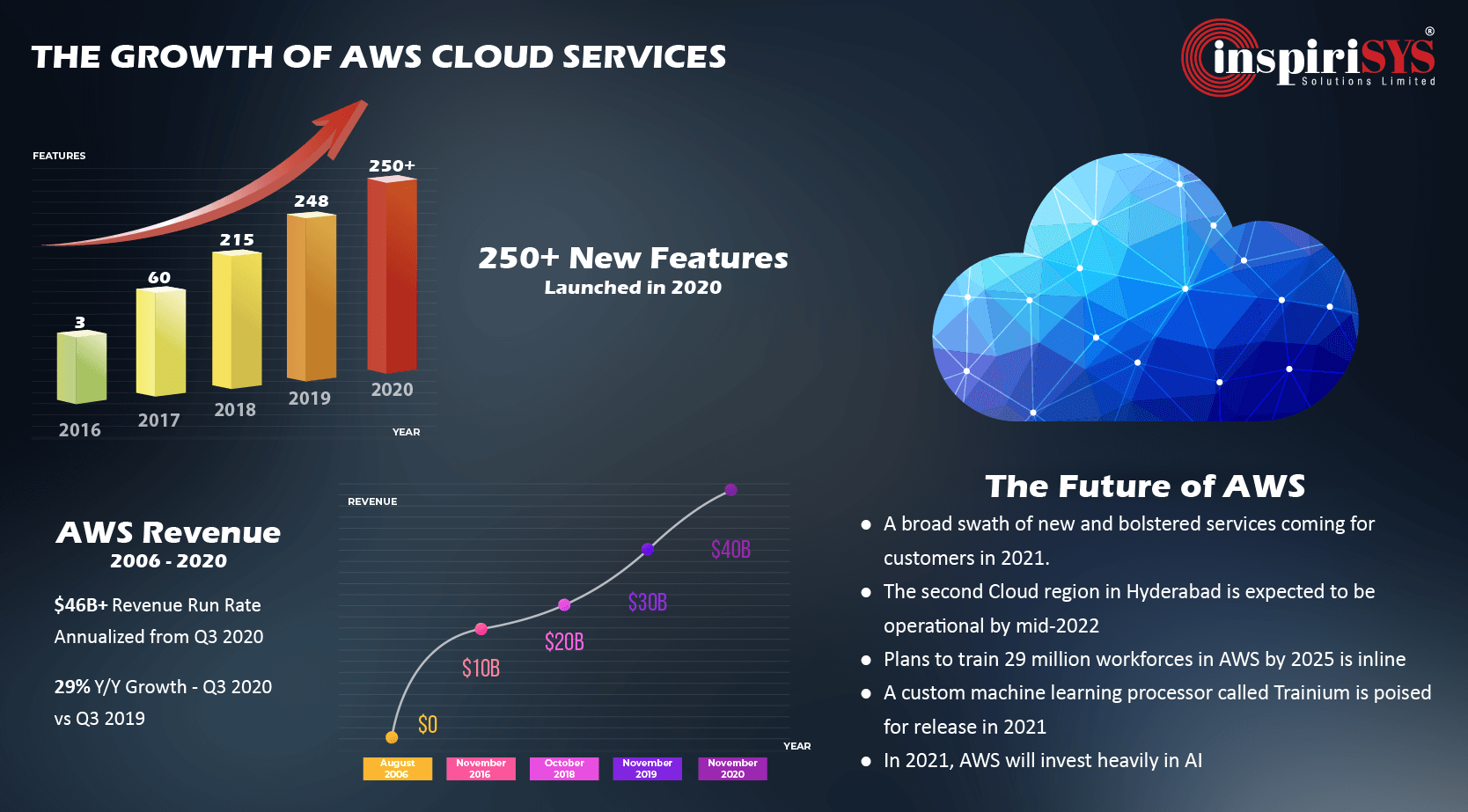
In this blog, we'll cover:
What is Amazon EC2 Instance?

Amazon EC2 is the core compute component of its Cloud technology stack. It immensely eases the process of scaling up or down with its resizable compute capacity. Furthermore, it can be easily integrated with other services. AWS offers a wide selection of instance types optimized to fit various functions. They comprise a myriad combination of CPU, memory, storage, and networking capacity. Thus, it caters flexibility to choose the right mix of resources for the applications.
[Case Study] How we helped a healthcare company to host their web portal to AWS Cloud?
Amazon EC2 Instance Types for Diverse Workloads
Amazon EC2 Instance types for diverse workloads provide a mixed balance of computing, memory and networking resources. They can be used for web servers and code repositories as an equal proposition of resources are required for these applications. The different types of general-purpose EC2 instances are:
Mac Instances for Xcode Developers
Mac instances are powered by the most versatile Apple Mac mini computers. The instances which are built on AWS Nitro System offer macOS access to developers to develop, build, test, and sign applications that require the Xcode Integrated Development Environment. The core components of these Instant types include Intel core i7 processors with a processing speed of 3.2 GHz, 6 physical or 12 logical cores, 32 GB of memory and Amazon Elastic Block Store (EBS) instance storage.
T4g, T3, T3a, T2 for Low Latency Interactive Applications
EC2 T4g, T3, T3a and T2 instances have burstable CPUs governed by CPU Credits and consistent baseline performance. They can be used for low latency applications, micro-services, small and medium databases, development environments, business-critical applications, and virtual desktops.
M5 and M5a for Small and Mid-size Databases
They are the latest generation of general-purpose instances. Powered by Intel Xeon® Platinum 8175M processors, M5 provides the balance of computing, network and memory resources, whereas M5a is powered by AMD EPYC 7000 series processors. It is a good choice for small and mid-size databases, data processing tasks, caching fleets, and backend servers for Microsoft SharePoint, SAP, cluster computing, and other enterprise applications.
Mg6 for applications built on Open Source Software
Mg6 instances deliver up to 40% better pricing and performance over the current generation of M5 instances. Applications built on open source software such as application servers, gaming servers, microservices, caching fleets and mid-size data stores work effectively with these instances.
M5n and M5dn for Web and Application Servers
M5n and M5dn, instance variants are ideal for applications that can benefit from improved network throughput and packet rate performance. These are 2nd generation Intel Xeon Scalable Processors. Web and application servers, cluster computing, gaming servers, small and mid-sized databases, caching fleets, and other enterprise applications, are the best fit for these instances.
A1 for Scale-out Workloads
A1 instances comprise custom-built AWS Graviton Processor with 64-bit Arm Neoverse cores. They are ideal for cost-saving and for scale-out workloads such as web servers, caching fleets, and distributed data stores, containerized microservices, as well as development environments.
[Expert level Comparison] AWS vs Azure vs IBM Cloud
EC2 Compute Optimized Instance Types

Organizations that manage compute-bound applications can benefit from high-performance processors of compute-optimized EC2 instances. They are suited for media transcoding, high-performance web servers, scientific modelling, dedicated gaming servers and ad server engines, batch processing workloads, high-performance computing (HPC), and machine learning inference.
C6g for High-Performance Computing (HPC)
C6g delivers up to 40% better price performance over the current generation C5 instances. They provide support for enhanced networking with up to 25 Gbps of network bandwidth. Also, they are EBS-optimized by default. They can be used for high-performance computing, video encoding, gaming, ad serving, distributed analytics, batch processing, scientific modelling, and CPU-based machine learning inference.
C6gn and C5 for High-Performance Web Servers
C6gn delivers up to 40% better price performance over the current generation C5n instances. They provide support for enhanced networking with up to 100 Gbps of network bandwidth. Also, they are EBS-optimized by default. They can be used for high-performance computing, High-performance web servers, batch processing, distributed analytics, scientific modelling, network appliance, machine or deep learning inference, ad serving, video encoding and, highly scalable multiplayer gaming. These benefits can also be leveraged with C5 instances that deliver cost-effective high performance at a low price per compute ratio.
C5a for High vCPU and Memory Bandwidth
C5a EC2 instances provide x86 price-performance for a wide spectrum of compute-intensive workloads. They are best fit for workloads requiring high vCPU and memory bandwidth such as data transformations, batch processing, gaming, log analysis, web applications, distributed analytics, and other compute-intensive workloads.
EC2 Memory-Optimized Instance Types

Organizations that process a large volume of data can leverage the fast performance of memory-optimized EC2 instance types.
R6g for Memory-Intensive Applications
R6g instances are memory-optimized and equipped with Arm-based AWS Graviton2 processors. Open-source databases, in-memory caches, and real-time big data analytics are some of the memory-intensive applications that can work at their optimal level with R6g.
R5, R5a, R5b and R5n for High-Performance Databases
R5 and R5a EC2 instances are well suited for enterprise applications such as high-performance databases, distributed web scale in-memory caches, mid-size in-memory databases, real-time big data analytics, and other enterprise applications. The largest size of R5 provides 768 GB of memory. R5a instances are the latest generation of memory-optimized instances ideal for memory-bound workloads whereas R5b instances increase EBS performance by 3x compared to same-sized R5 instances. R5n instances are ideal for applications that require network throughput and packet rate performance.
X1e for In-Memory Databases
Powered by High-frequency Intel Xeon E7-8880 v3 processors, these instances are one of the lowest prices per GB of RAM among Amazon EC2 instance types. Memory intensive enterprise applications such as High-performance databases, in-memory databases and memory-intensive applications.
EC2 Storage Optimized Instance Types
Organizations with applications that demand high, sequential read and write access to large data sets on local storage can use storage optimized EC2 instance types. They can deliver tens of thousands of low-latency, random input/output operations per second to applications.
I3 and I3en for NoSQL Databases
I3 instances offer low latency, very high random Input/Output performance, high sequential read throughput and provide high IOPS at a low cost. I3en provides dense Non-Volatile Memory Express SSD instance storage optimized for low latency. This family is ideal for NoSQL databases such as Cassandra, MongoDB, and Redis, in-memory databases, scale-out transactional databases, data warehousing, Elasticsearch, and analytics workloads.
D2 for MPP Data Warehousing
D2 instance family powered by High-frequency Intel Xeon E5-2676 v3 processors, delivers up to 48 TB of HDD-based local storage, deliver high disk throughput, and offers the lowest price per disk throughput performance on Amazon EC2. This family is well suited for Massively Parallel Processing data warehousing, MapReduce and Hadoop distributed computing, distributed file systems, network file systems, log or data-processing applications.
Amazon EC2 offers a wide spectrum of different instances each with one or more size options. We outlined general-purpose, compute-optimized and memory-optimized instant families. Furthermore, AWS provides accelerated computing, storage optimized instances. To choose the instances that best fit your needs, you should evaluate the performance of your applications and categorize your priorities based on computing, memory and workloads.
Connect with our Cloud Expert to understand more about Amazon EC2 Instances


